making fusion music
One of my more impulsive decisions this past week was to take Wednesday (May 23rd) off, and participate a workshop on fusion music organized by Dr. S.A.K. Durga of the Centre for Ethnomusicology, Chennai. The event was held at the Savera Hotel. It was good to exchange views with Prof. Akin Euba, Niko Higgins, Dr. Durga, Dr. Lalitha, Siddhartha Patnaik, K Parthasarathy, and others. We also got to listen to audio clips of various intercultural/interstylistic experiments, of which the most striking was Vijay Iyer's desi-influenced piano/poetry.
Then we got to the business of defining what is and isn't fusion music, a discussion that promptly got us tied up in knots. Defining fusion pre-supposes two or more 'authentic'/'un-mixed' forms in the first place, and this rarely turns out to be the case. Even Carnatic music, as homogeneous as we think it to be, represents an amalgamation of various streams, including ancient Tamil music. And Carnatic-Hindustani fusions represent a coming together of forms which have diverged from a common (albeit hybrid) ancestry to begin with.
Perhaps the most enjoyable part of the day was the jam session, in which we experimented with different kinds of stylistic blending and improvisation. While the die-hard musicologists griped that this was not really fusion, and that fusion music needs a corpus of compositions to be worth its weight in theoretical salt, the musicians did have a whale of a time.
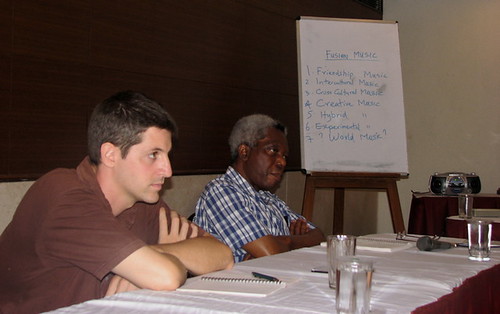
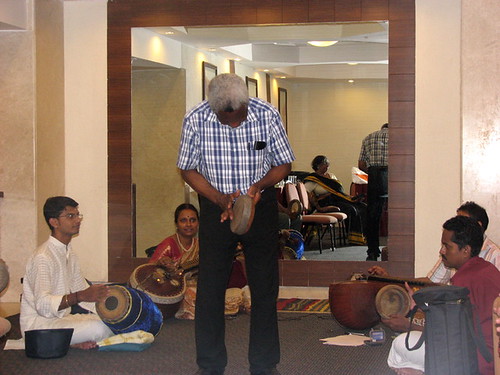

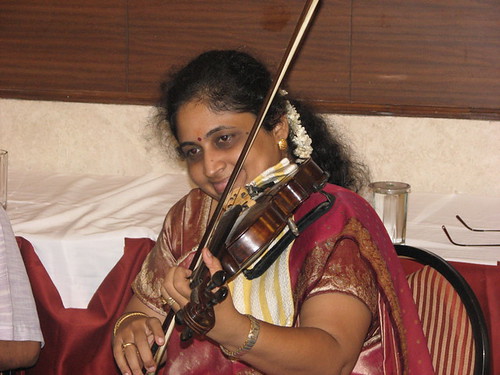
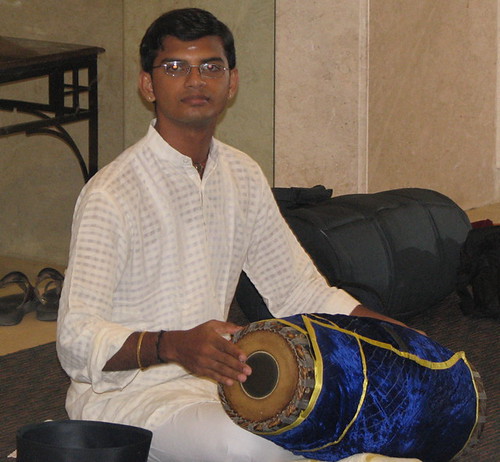
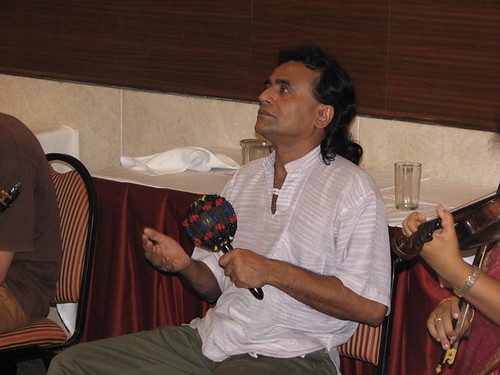


Two of my all-time favorite fusion music albums:
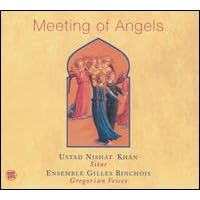
Meeting of Angels by Nishat Khan & Ensemble Gilles Binchois (1996), with Todd McComb's write-up here=>

<= Fra Senegal til Setesdal by Kirsten Braten-Berg (1997)
Then we got to the business of defining what is and isn't fusion music, a discussion that promptly got us tied up in knots. Defining fusion pre-supposes two or more 'authentic'/'un-mixed' forms in the first place, and this rarely turns out to be the case. Even Carnatic music, as homogeneous as we think it to be, represents an amalgamation of various streams, including ancient Tamil music. And Carnatic-Hindustani fusions represent a coming together of forms which have diverged from a common (albeit hybrid) ancestry to begin with.
Perhaps the most enjoyable part of the day was the jam session, in which we experimented with different kinds of stylistic blending and improvisation. While the die-hard musicologists griped that this was not really fusion, and that fusion music needs a corpus of compositions to be worth its weight in theoretical salt, the musicians did have a whale of a time.








Two of my all-time favorite fusion music albums:

Meeting of Angels by Nishat Khan & Ensemble Gilles Binchois (1996), with Todd McComb's write-up here=>

<= Fra Senegal til Setesdal by Kirsten Braten-Berg (1997)

